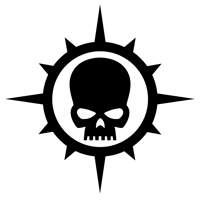Chaos Gate plunges players into the ceaseless conflicts that define the Imperium of Man. This digital adaptation leverages the complex lore of Games Workshop’s expansive universe, allowing players to command the Ultramarines, an elite chapter of the Adeptus Astartes, in their relentless crusade against the Chaos Space Marines. Unlike the tabletop experience, Chaos Gate translates the strategic and tactical depth of Warhammer 40,000 into a turn-based format, providing a nuanced and challenging gameplay experience that remains true to the thematic elements of the source material.

Game Mechanics and Tactical Gameplay
Chaos Gate combines intricate turn-based tactics with an action-points system similar to classic games like XCOM 2 and later Warhammer 40K games such as Battlesector. Each unit’s actions—whether moving, shooting, or engaging in hand-to-hand combat—are governed by the number of action points they have, making strategic planning crucial. This system is a departure from the tabletop game but is well-suited to the digital medium, allowing for detailed control without overwhelming the player with the minutiae of dice rolls and rule checks.
The game includes a variety of Space Marine units, each with specialized roles. Early in the game, players often rely on basic marines, but as challenges grow, more powerful units like the Devastator and Assault squads become vital. The progression system allows units to gain experience and improve their abilities, which is crucial for handling tougher enemies and scenarios as the campaign progresses.

Narrative and Campaign
Chaos Gate’s narrative is straightforward yet effective, focusing on a Marine commander’s quest to hunt down Chaos traitors. While the story might lack depth, it’s supplemented by well-rendered cutscenes that convey the high stakes and relentless determination of the Space Marines. The campaign is structured around key missions with specific objectives, interwoven with optional missions that allow for additional development and challenges.

Visuals and Sound Design
The game’s visuals, while not cutting-edge, effectively capture the gothic aesthetic of the Warhammer 40,000 universe with detailed sprites and isometric battlefield views. The animations add a dynamic feel to combat, despite the game’s overall static nature due to its turn-based format. The soundtrack, featuring Medieval Latin choirs with a martial vibe, enhances the thematic elements of the Space Marines, although it may become repetitive for some players.

Reception and Legacy
Upon its release, Chaos Gate did not achieve the mainstream success of later titles like Dawn of War, yet it has maintained a cult following among strategy enthusiasts and Warhammer fans. Its faithful adherence to the source material and strategic depth are frequently praised, although the game’s AI and technical limitations are noted drawbacks.
Critics and players have pointed out the game’s limited scope, focusing solely on the GW poster boys the Ultramarines and excluding playable Chaos forces or other races, which reflects a broader tendency in Games Workshop’s video game licenses to focus narrowly rather than broadly exploring the rich Warhammer 40,000 universe.




Modern Comparisons and Continued Relevance
Today, games like XCOM 2 have built on the foundations laid by titles like Chaos Gate, offering more sophisticated graphics, deeper storylines, and enhanced gameplay mechanics while retaining the strategic depth that fans of turn-based tactics crave. Yet, Chaos Gate remains a notable entry in the Warhammer 40,000 catalog for its authentic portrayal of the universe and its tactical gameplay, providing a bridge between the tabletop experience and digital gaming.
Conclusion
Warhammer 40,000: Chaos Gate stands as an important piece of the Warhammer video game legacy. It captures the essence of the tabletop game in a digital format, providing an engaging tactical experience despite its limitations. For those looking to delve into the strategic battles of the Warhammer 40,000 universe without the investment in miniatures and paints, Chaos Gate offers a worthy, though dated, alternative. Its role in adapting and preserving the Warhammer 40,000 ethos in a video game format continues to be appreciated by fans of the franchise and the genre.




